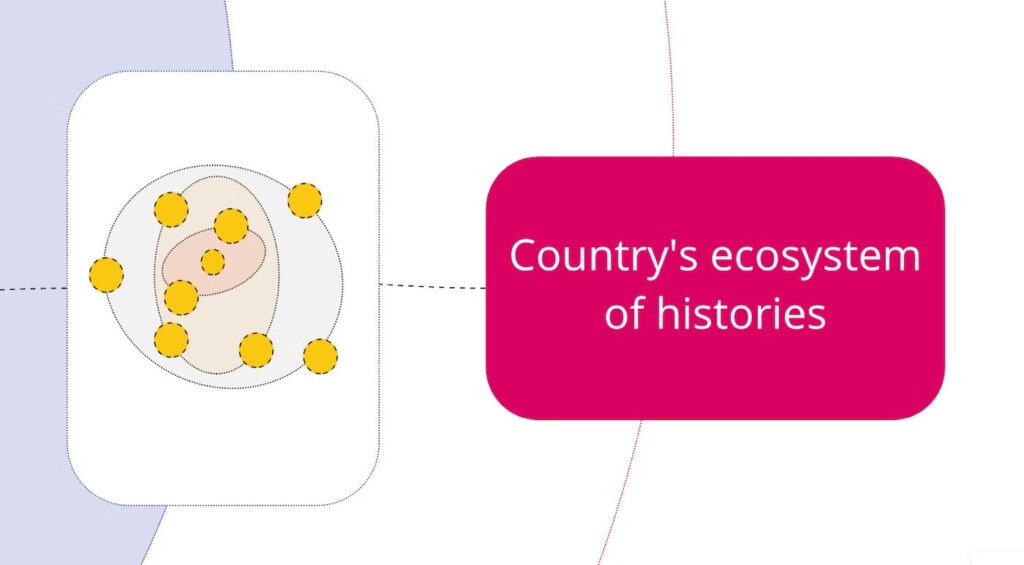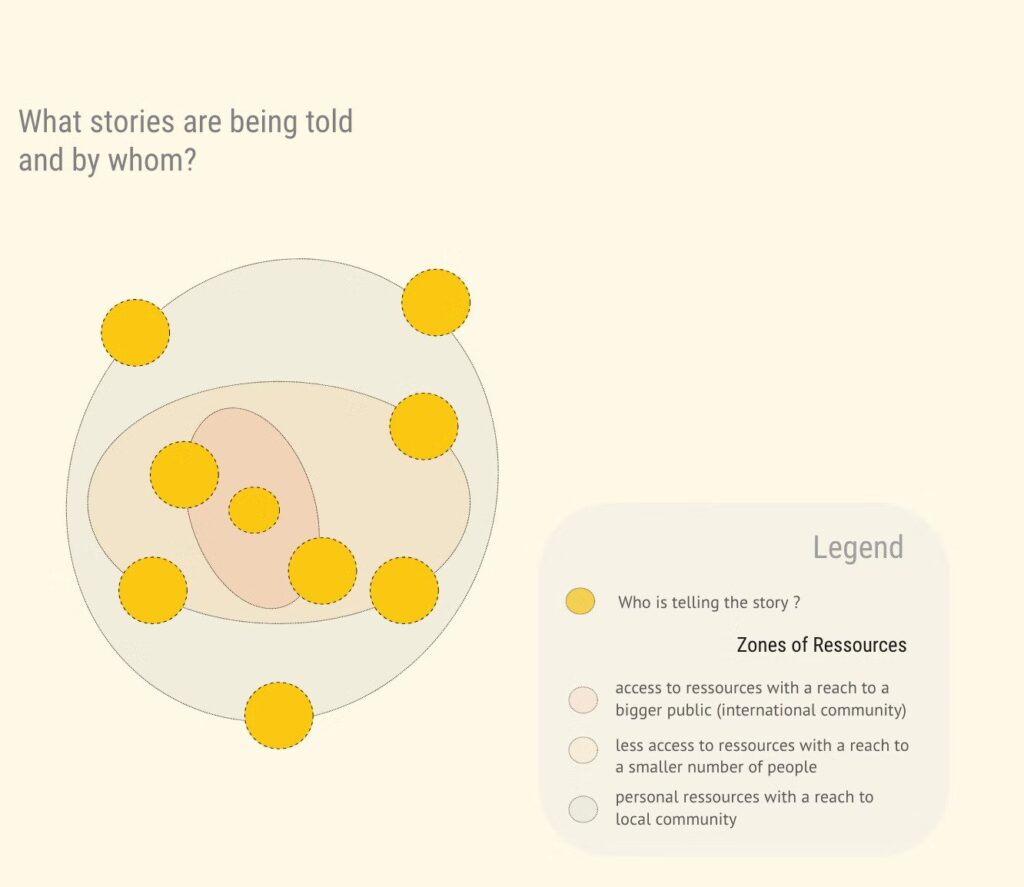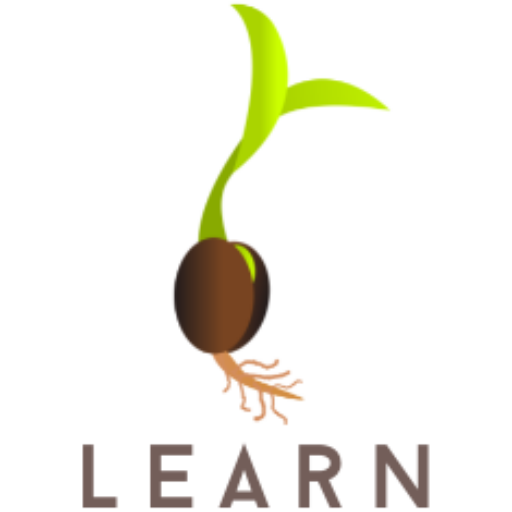
Credit: Image by Luiza Oliveira
Too often the histories shared in mainstream spaces are created by small groups of people, who usually hold a position of power in the local society, and they are allowed to share their version of it, under their lenses, excluding the many voices & experiences of the local community.
In this section we invite you to identify the resources and references of who is telling the stories of each community.
Have a look at the diagram below, and then on a page make your own version that has zone and spaces like the yellow dots to identify some of the different resources/sources there are for narratives that you know about. Which sections of society do different forms of media reach? Draw a yellow zone for each section of society, and label it appropriately, e.g. “the general public”, “the international community”, “activists”, etc.
Does the large-scale broadcast media have access to an international community? Are the local activists sharing the struggles of their reality to the people who speak their own language and beyond?
Using the country context that you chose to learn about in the ‘Grounding in Reality’ section, try and identify who is telling the story or the many stories of that country (add their name in your diagram). Then identify the ecosystem around this narrative, who is telling the story to whom?
Add the name of those who are telling the stories inside of the yellow circles and locate them within the zones of resources. Imagine the resources they have and the people they can reach.

Credit: Image by Luiza Oliveira
Now, that you have drafted and mapped a brief ecosystem of histories or stories of the country you choose to learn about, observe the feelings and thoughts that emerge in you when you make this map visible.
Let this all marinate for a bit, and start to pay attention to patterns within the social dynamics and how they are related to the environment and the culture within the country’s stories.
This marinade will be developed in the next lesson.
